TIRANA, Albania - Construction crews in Albania are busier than ever working on U.S.-funded humanitarian assistance projects that seek to improve educational and medical facilities in several isolated communities.
The projects, overseen by the U.S. Army Corps of Engineers Europe District, are part of a U.S. European Command program that partners with U.S. Embassies in Eastern Europe to support the continued development of the country's infrastructure.
"Personally, this is the most rewarding part of my job," said Col. Martin Perryman, chief of the Office of Defense Cooperation at the U.S. Embassy Tirana, who works with the U.S. ambassador's country team to select the projects that will provide the most support with limited Department of Defense dollars. "[HA projects] make the longest lasting contribution to not only the development of Albania but to cementing and maintaining the relationship that Albania and the U.S. have, which is probably one of the best relationships in the world right now. Our approval rating here is just through the roof."
Currently, the district is overseeing more than $1 million in renovation contracts in Albania making the small Balkan country the largest recipient of EUCOM's HA funds in fiscal year 2010.
"Humanitarian assistance, at least here in Albania, is one of the most cost-effective, valuable tools for U.S. foreign policy here in the Balkans that we have going," said Perryman. "To redo a school is just a few hundred thousand dollars, but the impact it has far exceeds that much investment."
EUCOM's HA program has been active in the former Eastern Bloc country since 1996, while the district's HA support began in November 2007 with a contract to renovate a clinic in Bulqize. Since then, the district has overseen roughly $2 million to rebuild schools and medical facilities in several isolated communities.
"I believe this is the most work we've ever done in the country," said Darrell Cullins, a district project engineer. "I'm proud to be part of the team helping assist such an important ally."
REPAIRING BEDROCK INSTITUTIONS
A five-hour drive from Tirana up zigzag roads peppered with potholes, sinkholes and large rocks leads to Kastriot, a small municipality in the highlands of northeastern Albania where the Europe District is overseeing a $322,000 contract to refurbish a school for use by several small municipalities in the region with a total population of about 14,000, including several hundred students - many of whom walk up to four kilometers to school.
Students 6-18 years old can attend the school. However, according to the school director and mayor of Kastriot, who both appealed for the repairs, the poor condition of the school caused many students to abandon it. Its isolation also encumbered nongovernmental organizations from funding other projects in the region.
"The schools in this region have been, pretty much, in a state of non-repair since the end of the communist regime in the early 1990s," said Perryman. "So they've been sitting for 20 years, still in use; windows are being broken and not repaired; heating systems are falling into disuse for lack of fuel; wood-burning stoves are being stuck in the classroom for use in the winter; complete floors of these buildings have been abandoned due to water seepage."
The repair of this school is part of an integrated approach to reinforce regional stability, said Perryman, as it not only improves educational facilities to bring children back to school, it also promotes future sustainability efforts by bringing attention to the needs of these communities.
"It's very significant in terms of community development because schools are just one of those bedrock institutions where you're going to win the next generation and improve conditions on the ground," said Perryman. "So what we're going to do is seal up the building ... [and] give them a really good, solid outside structure. And then to the extent possible with our funding, we'll start working our way through the electricity, the plumbing, the flooring, the walls on the inside until eventually we'll wind up with a viable, usable space where they can educate children."
A second school in repair is in Kalivac, about three hours from Tirana. Renovations to the three-story school, estimated at about $310,000, include repairs to the roof, faAfASade, floors, stairwells, bathrooms and fire escapes. The project also calls for new furniture, including desks, cabinets and blackboards, and the installation of new water lines and a new exterior fence.
According to the embassy, an estimated 30 percent of all schools in the prefectures of northern Albania have damages that result in loss of adequately clean water and toilets as well as broken doors, windows, roofs, walls and floors.
The communities in northern Albania also have high unemployment rates, some as high as 25 percent.
"An added benefit of these projects is the economic assistance they provide the region," said Darrell Cullins, a district project engineer. "We've been working with the contractor - SKE Romania - to use local materials and labor when possible in order to provide as much economic assistance to the local communities as possible."
Barim Shini, a laborer assisting with repairs at the Kastriot school agreed that the projects help the local citizens. "I guarantee this project has a positive impact on the local economy," said Shini, who is from Kastriot. "There are a lot of people who are looking for jobs."
Both school projects are estimated to be completed by winter 2010.
HELPING MOTHER TERESA
The final ongoing renovation project seeks to upgrade a section of the "Mother Teresa" University Hospital Center in Tirana to accommodate enough communications infrastructure to allow it to be the center of a spoke-and-hub telemedicine program. Once complete, this network will be used to improve the quality of general medical care as well as strengthen the nation's disaster preparedness and response network.
This $400,000 project, funded through EUCOM and the U.S. Agency for International Development and shepherded by the University of Arizona's College of Medicine, is the first of several projects that seek to link 14 isolated hospitals and clinics via Internet communication tools to allow for training, counsel and access to previously inaccessible medical libraries. According to Perryman, it is a major feat for a country with a poorly developed transportation system and difficult living conditions, including one of the worst infant mortality rates in Europe.
"This is going to be a big improvement in the quality of medical care here in Albania," said Perryman. "It's another great example of how we collaborate and bring the different strengths of the different agencies together."
Ultimately, the program seeks to improve basic public health outcomes in outlying areas by allowing citizens with complex or rare medical conditions to receive immediate high-quality care. USAID is purchasing the necessary equipment and garnering an NGO to set up, train and sustain the program, while DOD is funding hospital improvements needed to house and maintain the system.
"I'm really excited about this project, even though I won't be here when it comes to completion," said Perryman. "This is probably my best work in Albania."
HA projects in Albania completed in 2009 include renovations to the Kucove school in central Albania for about $585,000 and renovations to the Bregu I Lumit clinic for about $411,000. In addition to expected renovations at hospitals and clinics throughout the country, upcoming HA projects in Albania include a renovation of a kindergarten in Erseka for $100,000 and a schoolyard renovation for $150,000.
The district is also managing 25 other HA projects throughout EUCOM in FY10. Valued at roughly $9 million, the projects include sites in Georgia, Armenia, Azerbaijan, Estonia, Latvia, Moldova, Croatia and Serbia. The district is also managing 15 projects for the U.S. Africa Command - worth about $4 million - in Mauritania, Mali, Niger and Zambia.
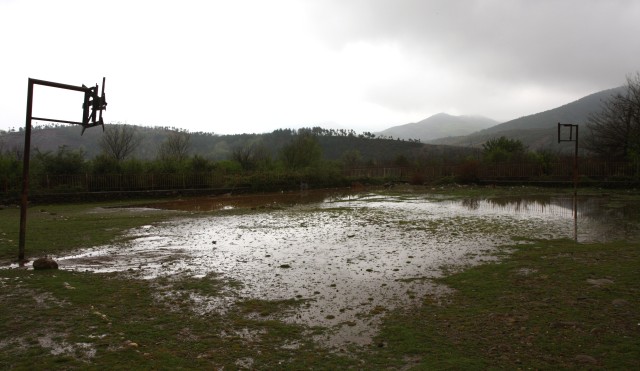
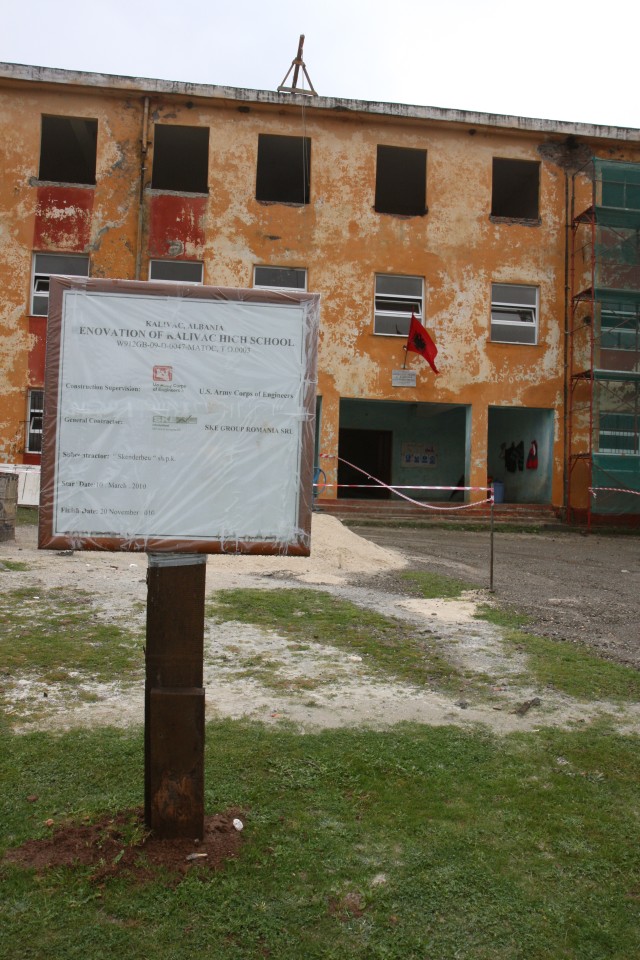
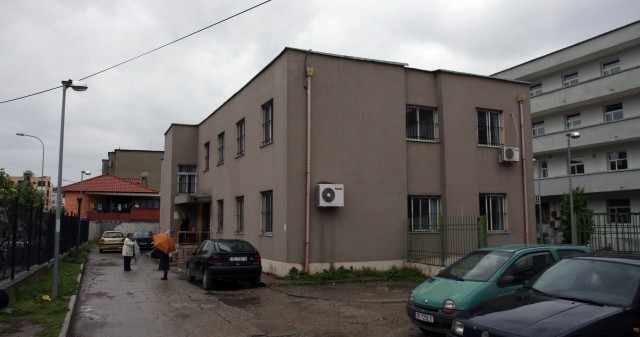
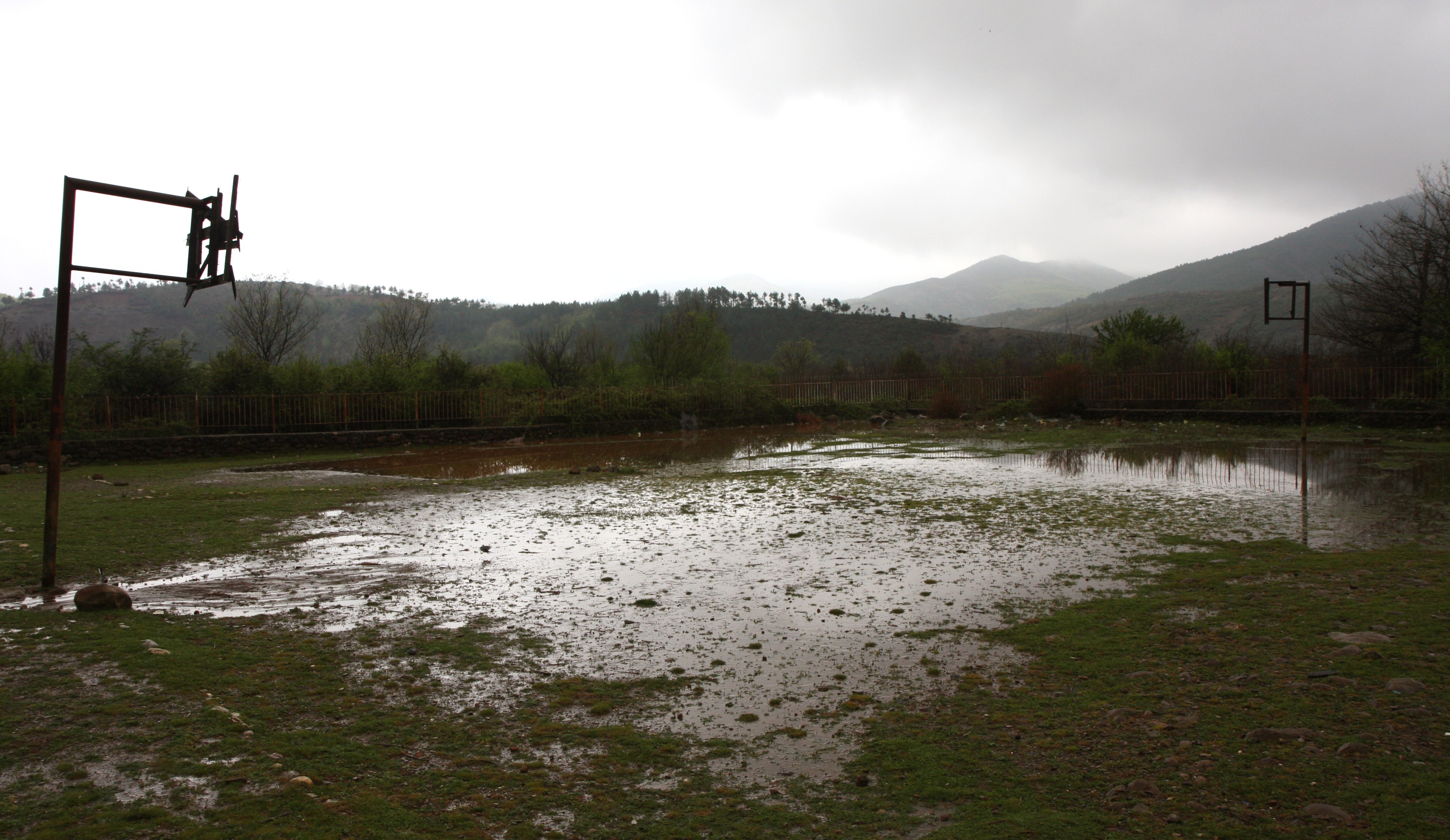
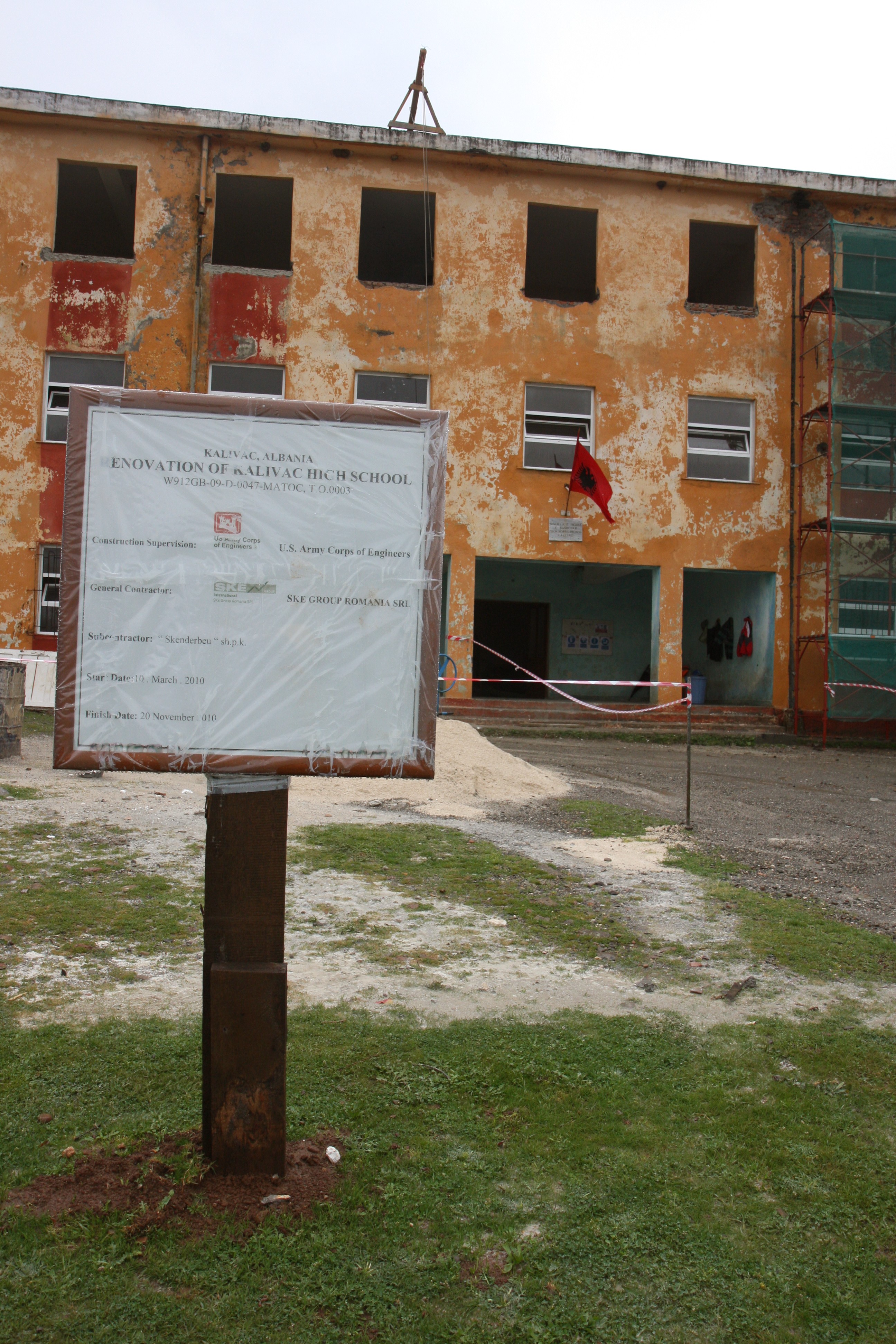
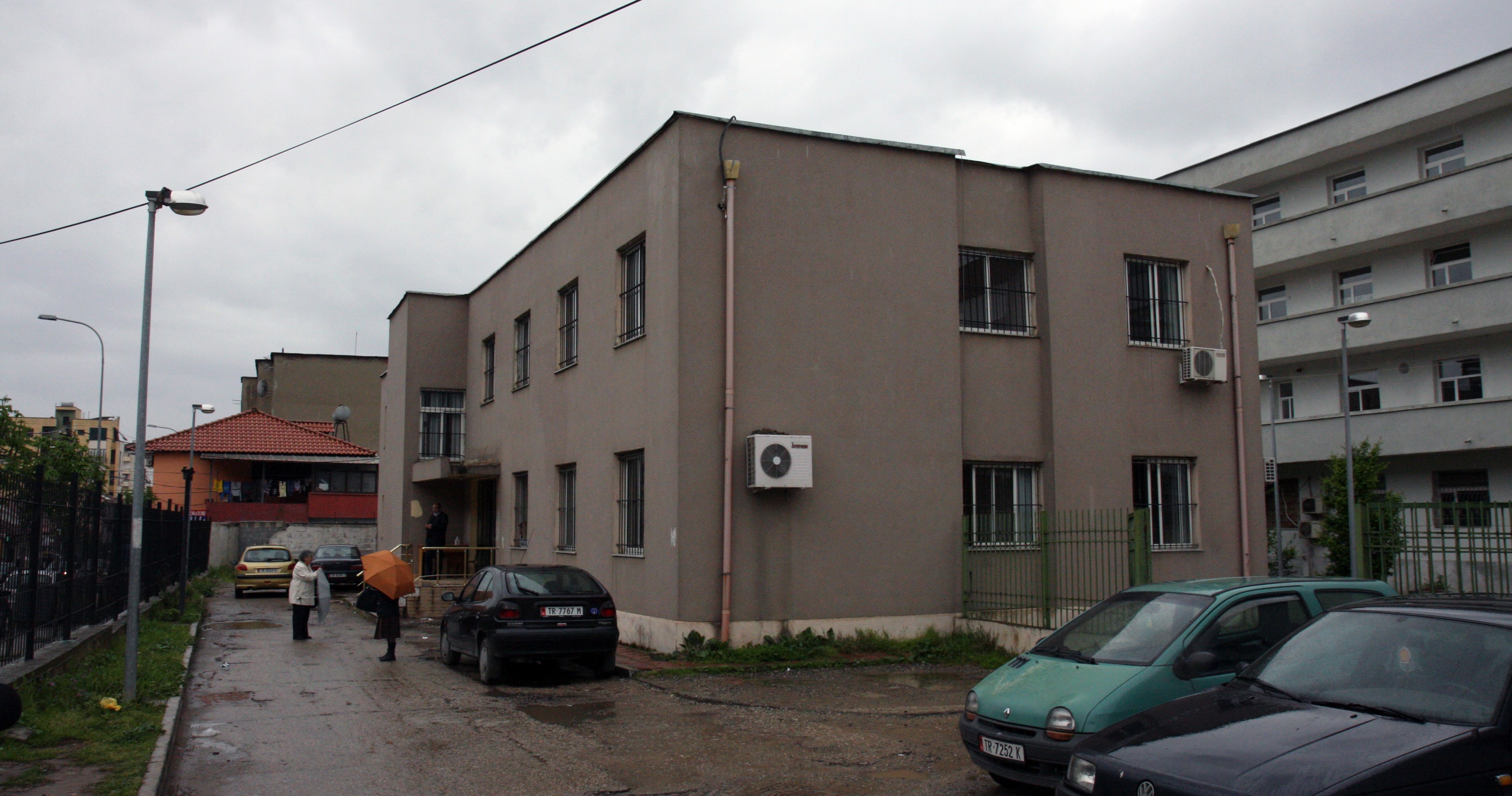
Social Sharing